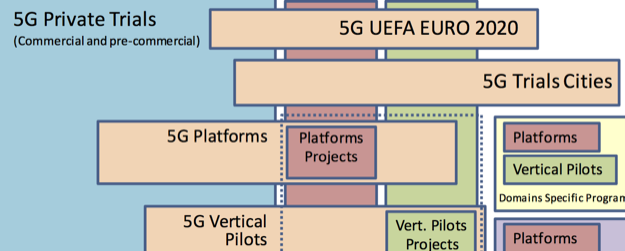A European trade group wants more 5G coordination and less marketing misdirection, while at the same time AT&T is running as fast as it can in the opposite direction. On the one hand, it’s an interesting contrast between the technocratic central planning that European telecoms companies often take comfort in (and often ignore, when it suits them), and the Wild West, grab-it-while-you-can ethic of the U.S. mobile industry.
On the other, it’s a useful reminder that the overheated press releases and aggressive lobbying by U.S. mobile companies, and AT&T in particular, does more than just confuse consumers and policy makers. It also creates needless distractions and delays for technology and infrastructure that relies on international standards and a global supply chain.
The 5G Infrastructure Association is a creature of the European Commission, one of the main governing branches of the European Union. It’s job is to coordinate development, trials and, eventually, full roll out of 5G mobile technology and networks across Europe. It released its latest road map earlier this week, showing true commercialisation of 5G technology coming sometime after 2020, and warning carriers that “it is very important to avoid premature ‘5G’ launch announcements and the subsequent potential fragmentation among the different countries, which would hurt both industry and consumers”.
It’s no shock that an E.U.-sponsored group is calling for more coordination and consumer protection – it’s what they do. Nor is it a surprise that AT&T is completely ignoring them – it’s what they do. The tension between the two helps maintain a balance between innovation and cooperation, both of which are indispensable to the telecommunications industry.
What’s not necessary, though, is misleading hype. More industry groups should follow the 5G Infrastructure Association’s lead and insist on clarity and truth in labelling. Facts are important.

